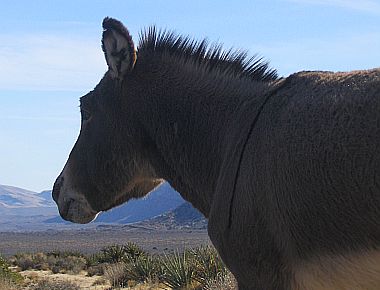One of the barriers to a happy, effective life is the way that we create negativity in our daily affairs. We swap stories of adversity — the store clerk that was rude to you, the boss that never recognizes your contribution, the accident we saw on our way into work — as a way of passing time, of connecting with each other. We kick ourselves for procrastinating, avoid colleagues we don’t get along with, gossip about ex-friends who screwed us over, and so on.
Hopefully, we’ve learned to put negative thoughts out of our mind when we face a crisis, but what about the more pervasive, low-grade negativity we create and even embrace in the act of working our ways through our lives? A lot of people seem to sabotage themselves not so much by being unable to deal with crises but by creating them out of thin air. How can we avoid being an “Eeyore“, someone who sucks the energy out of a room and out of ourselves?
Here’s a few ideas:
- Stop saying that! How many time a day do you tell people how tired you are? How often do you say “I’m bored”? When you screw something up, do you tell people around you how stupid you are? Is “I can’t complain” the best response you can come up with to “how are you?”
For some reason, we feel obligated to undermine ourselves as part of our normal conversation routines. Well, stop. If you’re really tired, bored, or stupid, you’re doing something wrong and need to have a long conversation with yourself — maybe you’re in a bad job, a bad relationship, a bad place in your life. But usually, we’re just passing time — do so with something positive instead. Tell people how excited you are about whatever you’re working on — excitement and energy are contagious and who knows? You might even catch some of it back.
- Don’t avoid conflict. Don’t go looking for it when it’s not there, either, but when a real conflict exists between you and another person, address it and get it out of the way, a.s.a.p. We can often talk, in-depth, with friends or other uninvolved parties about the problems we have with how someone else works, talks, acts, or just is — but we come up shy about talking about our concerns directly with that person. Not only does this put an additional strain on the relationships, throwing the conflict into a downward spiral until it eventually is unrecoverable, but the work of avoiding conflict usually takes more energy than dealing with it would. So take charge and deal wit conflicts as they arise, before they become a drain on both of your energies, and on those around you.
- Don’t “but”. Replace “but” in your vocabulary with “and”. “But” is our way out, our excuse — “I know I shouldn’t do this, but…”. “And” doesn’t give any leeway — it demands action, it orders fulfillment. Try to catch yourself on the verge of letting yourself of the hook with a “but”, and see what happens when you put yourself under the thumb of an “and” instead.
- Stop worrying about the weather. Or anything else you really can’t do anything about. There is a wisdom in the Alcoholics Anonymous admonition to accept the things you can’t do anything about — use your energy to solve the problems that actually arise instead of fretting over the thousands of problems that might happen.
- Acknowledge and move on. Despite our best efforts, bad stuff happens. Give your mistakes exactly as much attention as it takes to acknowledge and learn what needs to be learned, and then put it behind you. Don’t dwell — dwelling on the negative undermines our confidence and energy and can easily lead to worse mistakes down the line.
- Don’t be chipper. This may seem contrary to my message here, but there’s a difference between not creating any more negativity in our lives than life itself throws at us and going through life oblivious to the real negativity that does, in fact, need to be dealt with. Life has a way of throwing us curves, and when they come we need all our resources and abilities to deal with them. Don’t avoid dealing with the stuff that needs to be dealt with in a vain attempt to insulate yourself from the negative.
Mark Twain said, “I am an old man and have known a great many troubles, but most of them never happened.” We often create and endure more troubles than actually confront us, just through the act of envisioning and fretting over negative scenarios in our heads. It pays, of course, to be prepared, but there’s a point of diminishing returns a point where we are investing more of ourselves into fighting off the troubles that don’t afflict us than we would dealing with the troubles that actually come to pass. We spin these scenarios out of our fears and anxieties about our own shortcomings, not out of a clear-eyed assessment of the world around us. And we feed those fears and anxieties with the thousand little negativities we generate in the course of our daily lives. So try starving the little buggers out, and save the worry for when things really are going wrong.













































